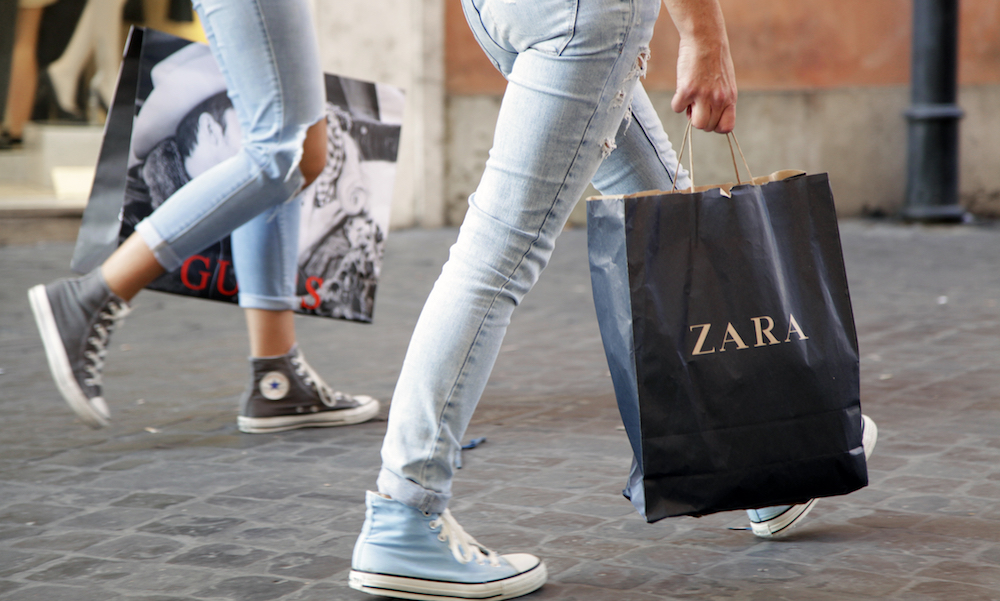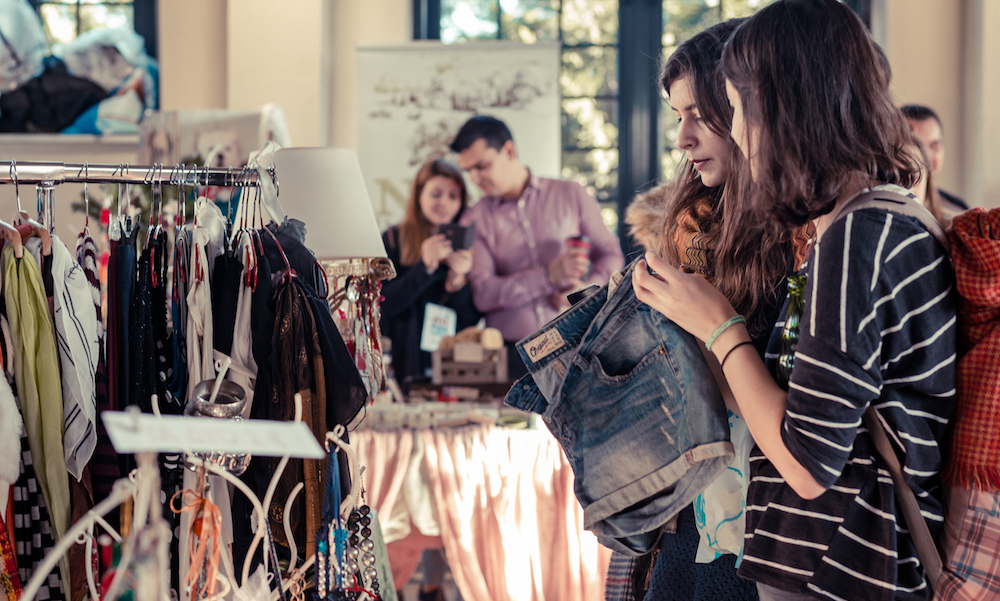Can you cut 1 Tonne of carbon pollution out of your life?
Take the challengeOur shopping decisions are having a catastrophic impact on our planet.
With the recent emergence and growth of fast fashion, the clothing industry now sits at a firm second place when it comes to the world's largest polluters. It's only second to the fossil fuel industry!
In Australia, the average person buys 27 kilograms of clothing every year and only wears an item 7 times before off handing it or throwing it away. So what happens to all the unwanted clothes?
Instead of throwing clothes out, some of us donate them to our local second hand shop. But the reality is, only 15% of unwanted clothes that are given to second hand charity shops meet the demands and quality standards to be resold locally. The remainders either get shipped overseas, turned into rags, or sent to landfill.
Fast fashion retailers are now creating 52 fashion seasons a year. With the help of advertising, they are profiting off the unrealistic societal expectations for consumers to keep up with rapidly changing 'trends'. This churn and burn mentality is disastrous for our planet and is also impacting on the way we view ourselves.
So how can we say no to fast fashion?

Buy secondhand
With fast fashion seasons now changing every single week, new garments are being produced quicker than it takes to read this sentence. Buying secondhand is the best way to reduce your clothing footprint. In addition to having the planet thank you, shopping secondhand is a great way to find high quality, unique garments at a fraction of the price of buying new.
Build a capsule wardrobe
Eliminating the (sometimes difficult) decision of what to wear each morning is a great way to make space in the mind for more important decisions. Capsule wardrobes can do just this. A capsule wardrobe consists of only 30 quality and much loved items that are worn exclusively. In order to make the most of a capsule wardrobe, make sure to pick the necessities first, ensuring that all items have a bit of versatility so that they can be mixed and matched.
Invest in ethical clothing when buying new
But be wary of greenwashing. Buying ethical clothing isn't just about looking for an 'ethically produced' accreditation. There are many aspects to an item of clothing that make it either sustainable or not sustainable. Where was the item of clothing made? If it was made halfway across the world, the carbon miles it took to end up in your wardrobe are contributing to climate change. Does its price reflect its quality? If a garment is cheap in price and cheaply made, it is unlikely that it will last long. Make sure to check for dodgy stitching and poorly produced fabric.

Shop til you d… don't need any more clothes
Most of us are guilty of buying more things than we need. But rejecting a life of overconsumption is all about learning to love what we already have. Mix and match your garments to create new styles and learn to love your clothes, no matter how long you've had them for. Scientists have long been telling us that experiences make us happier than things do, so why not substitute shopping for a more experience-based hobby?
Learn to sew
Don't worry. I'm not suggesting that you make your entire wardrobe from scratch. But having some sewing skills under your belt can be highly beneficial to the planet and your wallet. By mending your clothes when they're damaged, you can prolong their lifetime and reduce the amount of clothing being sent to landfill.
Wash less and hang dry
While reducing your carbon footprint, washing your clothes less will also make them last longer. After a couple wears, hang clothes out in the sun to kill the bacteria that causes odour. When washing, use a cold setting and avoid using a dryer to maintain fabric integrity for longer.
By combining all six of these planet-friendly actions and always choosing quality over quantity, we can all help to put an end to fast fashion.
Read this next: Sustainable Shopping: For Planet-Friendly Jeans, Stop Washing Them So Often
We're in a climate emergency and it's going to take all of us to get out of it. That's why 1 Million Women is building a global community of women committed to fighting climate change with our daily actions. To join the (free) movement just click the button below!

